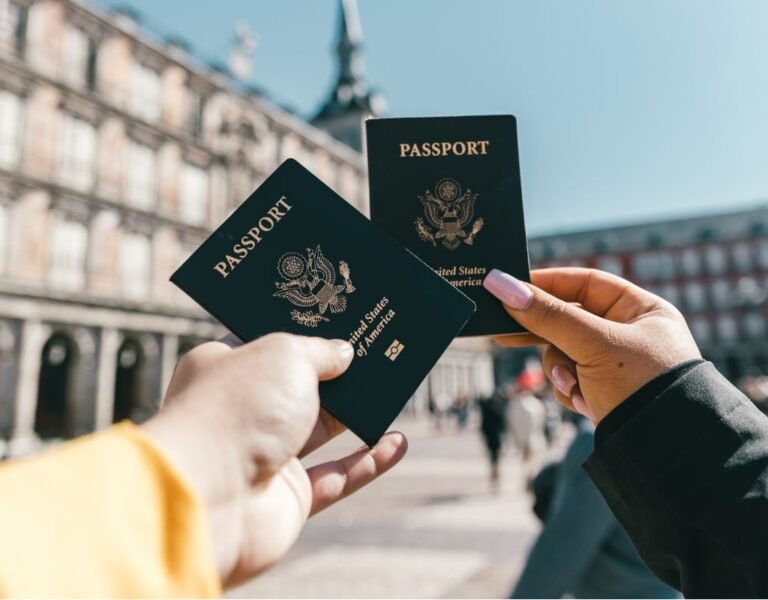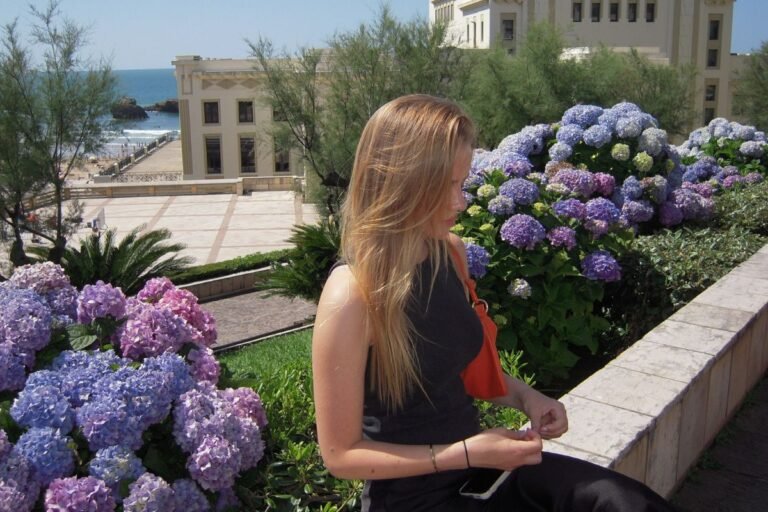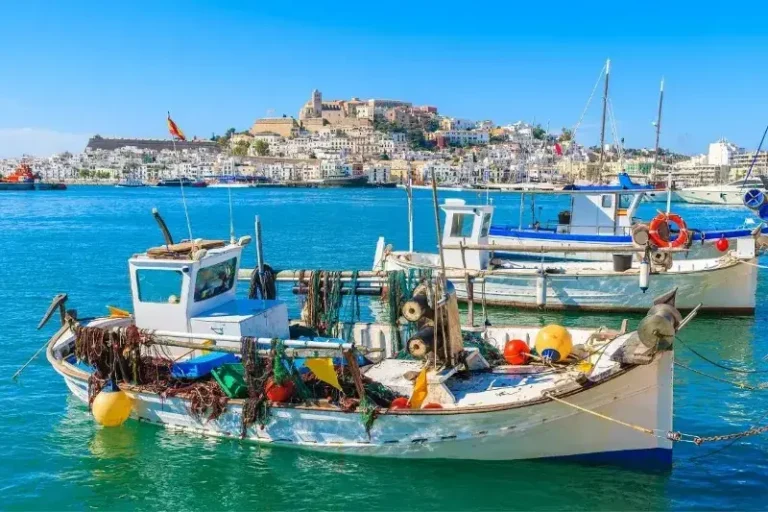How to Open a French Bank Account as a Foreigner: A Step by Step Guide
|
This post may contain affiliate links. If you purchase through these links, we may earn a small commission at no extra cost to you. You can find more information in our disclaimer.
Moving to France is exciting, but it also comes with its fair share of challenges—and one of the first hurdles you’ll likely face is how to open a French bank account. Trust me, I’ve been there.
Many moons ago I moved to France for university, and last year, my oldest daughter followed in my footsteps, heading to France to study. That means we’ve opened a French bank account more than once, so I’m well-versed in the process and the quirks of the French banking system.
If you’re feeling overwhelmed with the bureaucracy and all the hoops you seem to be jumping through to get your move to happen, check out my How to Move Abroad e-book to help you make the right decisions and make your transition as smooth as possible.
And living just 20 minutes over the border in Spain, we visit France frequently—about three times a week. It’s wonderful to get to see our daughter so frequently, but it also means we help her tackle the occasional banking dilemma.


From setting up accounts to dealing with unexpected fees, I’ve learned a lot about navigating French bureaucracy. In this guide, I’ll walk you through everything you need to know to open a bank account in France as a foreigner, step by step.
By the end of this article, you’ll know whether you actually need a French bank account, what documents to prepare, and which banks are best for foreigners. Whether you’re moving for work, study, or simply to experience life abroad, this guide will make the process a lot smoother. So, let’s dive in!
In a Rush? Here’s the Lowdown on How to Open a Bank Account in France
🏦 Pick the right type of account: For everyday payments like bills and utilities, go for a compte courant (current account).
🏦 Prefer a physical bank? If you’re a resident, BNP Paribas is a reliable option with branches you can walk into.
🏦 Love online banking? For non-residents or those who want flexibility, Boursorama Bank is the best choice with low fees and plenty of services.
🏦 Get your documents ready: You’ll need proof of identity, address, residency status, and employment or student status. Depending on the bank, you’ll either upload them online or bring them to an appointment.
🏦 Have some cash handy: Most banks require an initial deposit to open your account.

Get Started Today!
How to Move Abroad
A Workbook to help you make the right choices
Use our easy to follow roadmap to help you find the perfect location to start your new life.
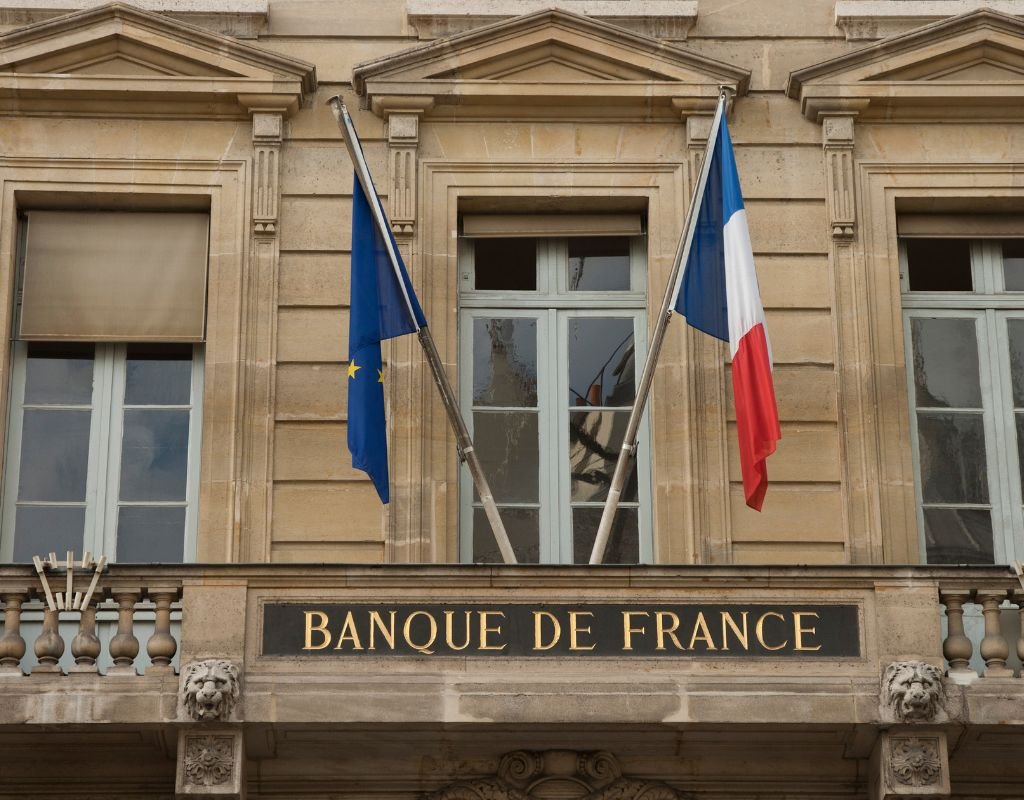
Can a foreigner open a bank account in France?
Yes, you can open a bank account in France as a foreigner. The type of account you can open depends on your residency status:
- Residents: If you’ve been living in France for more than 183 days on a valid visa and pay taxes, you’re considered a resident. As a resident, you can open a standard current account, known as a compte courant, which is suitable for everyday transactions like receiving a salary, paying bills, and shopping.
- Non-Residents: If you spend less than 183 days a year in France and aren’t a tax resident, you can open a non-resident account, or compte non-résident. This type of account allows for basic banking services but may have limitations on cash withdrawals, payments, and fund transfers. It’s also more expensive.
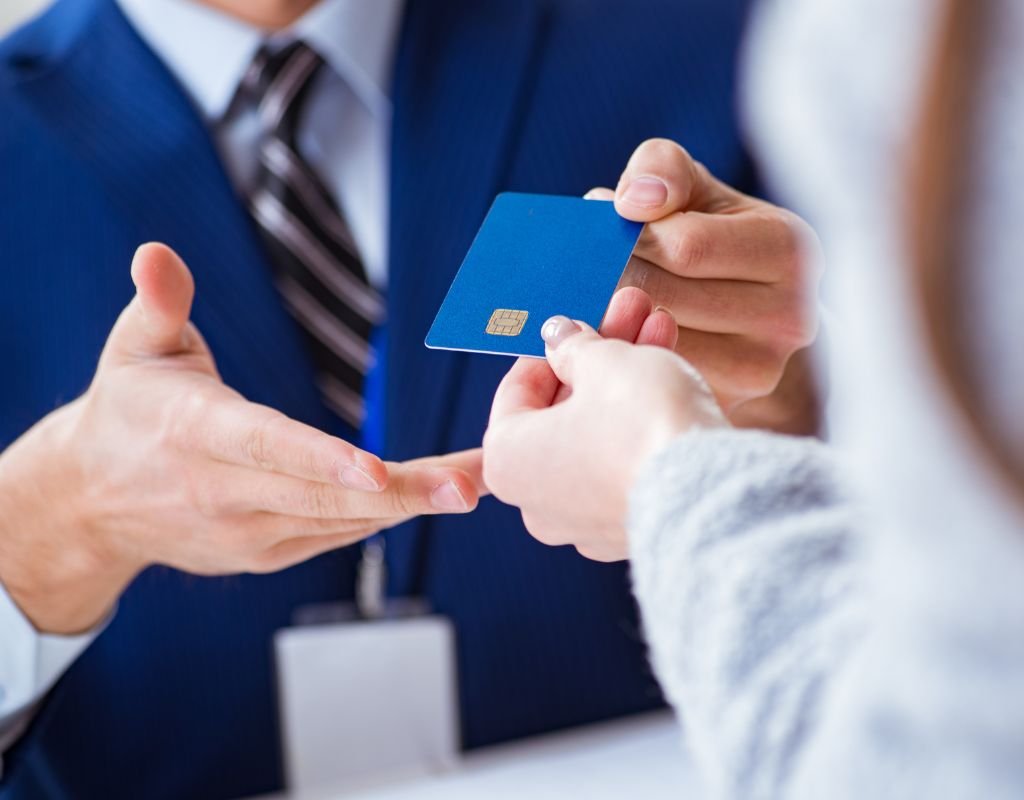
Do I need a French bank account to live in France?
It’s not legally required to have a French bank account, but having one makes your life a lot easier! Here are some of the things I’ve come across which require a French bank account:
🏦 Housing: Many landlords, especially in cities like Paris, prefer or require tenants to have a French bank account for rent payments. My daughter’s landlord was no exception.
🏦 Utilities and Services: Setting up utilities (electricity, water, internet) typically requires a French bank account for direct debits.
🏦 Mobile Phone Contracts: Many mobile phone companies require a French bank account for monthly payments.
🏦 Transportation: Services like the Vélib’ public bike share system in Paris may require a French bank account for subscription payments.
🏦 Government Benefits: If you’re eligible for benefits like CAF housing assistance, having a French bank account is essential for receiving payments.
🏦 Health Insurance Reimbursements: Reimbursements from the Sécurité Sociale or supplementary health insurance (mutuelle) are typically deposited into a French bank account.
🏦 Memberships and Subscriptions: Monthly payments for gym memberships, cinema passes, and public transportation cards all require a French bank account, although my daughter’s gym has accepted an international account.
🏦 Utility Bills and Insurance: Automatic e-payments for utility bills and paying renter’s insurance (which is required by law) are only possible if you have a French bank account. Otherwise you’ll need to remember to pay them on time!
In addition, transferring money (virements), setting up scheduled electronic payments (prélèvements), and receiving reimbursements are much easier—and sometimes only possible—with a French bank account.
The nice thing is that the Carte Bleue (ATM card) my daughter has can be used anywhere in France and most places throughout Europe. Although the bank does charge extra, she often uses her card without any problems when she comes to visit us in Spain.
🔥 Hot Tip: If you encounter difficulties opening a bank account, don’t worry. France has a process called “droit au compte” (right to account). If a bank refuses to open an account for you, (because they can, and sometimes do) you can approach the Banque de France, which will designate a bank that is then obligated to open an account for you.
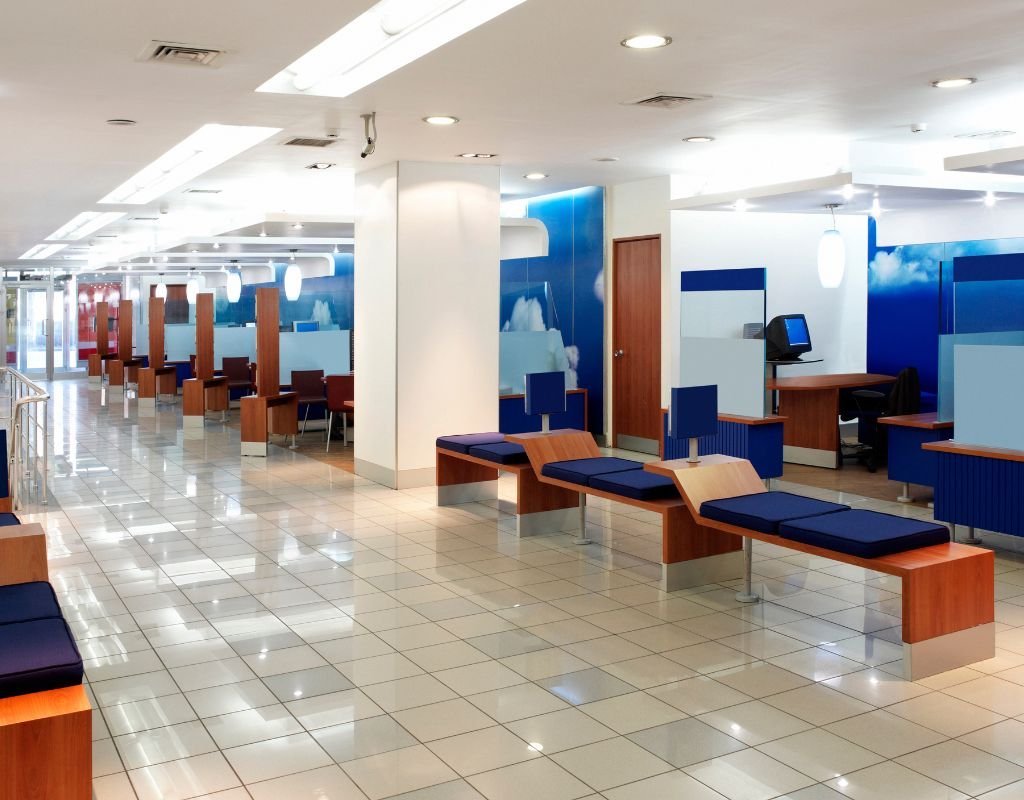
Types of bank accounts in France
In France, there are several types of bank accounts designed to meet different financial needs. Here’s a breakdown to help you choose the right one:
💰 Compte Courant (Current Account):
This is your everyday bank account, perfect for daily transactions like receiving your salary, paying bills, and making purchases. It comes with a debit card (carte bancaire) and often a checkbook. Most residents and non-residents can open this type of account.
💰 Compte Joint (Joint Account):
This is a regular joint account. Ideal for couples, roommates, or business partners, it allows several people to access and manage shared expenses.
💰 Livret A (Tax-Free Savings Account):
A popular savings account offering tax-free interest. It’s available to both residents and non-residents, with regulated interest rates and deposit limits. Your money can be quickly withdrawn, so this is a popular savings account.
💰 Livret Jeune (Youth Savings Account):
Designed for students aged 12 to 25, this account offers attractive interest rates and tax-free savings, encouraging young people to save money.
💰 Plan Épargne Logement (PEL) and Compte Épargne Logement (CEL) (Housing Savings Plans):
These accounts are tailored for those planning to purchase or renovate property in France. They offer higher interest rates and, after a certain period, can provide access to favorable mortgage rates.
💰 Compte à Terme (Fixed-Term Deposit Account):
This account allows you to deposit funds for a fixed term, earning a predetermined interest rate. It’s suitable for medium to long-term savings goals but usually requires leaving the funds untouched for the agreed period.
💰 Compte Non-Résident (Non-Resident Account):
For individuals who don’t reside in France but wish to have a French bank account, this option provides basic banking services. However, it comes with certain restrictions and higher fees.
💰 Plan d’Épargne en Actions (PEA) (Equity Savings Plan):
This is an investment account that allows you to invest in European stocks and shares with certain tax advantages. It’s great if you want to invest in the stock market.

What documents do you need to open a bank account in France?
Here’s what your bank will generally ask you for:
Proof of Identity
- Passport or National ID: A valid passport or national identity card.
Proof of Address
- Utility Bill: A recent utility bill (electricity, water, or gas) in your name which shows your French address.
- Rental Agreement: A signed lease contract in your name.
- Accommodation Attestation: This is what you need if you’re staying with someone. It’s an official letter from your host (attestation d’hébergement) plus their proof of address.
Proof of Residency Status
- Visa or Residence Permit: French Document indicating your legal status in France, such as a visa or residence permit.
Proof of Employment or Student Status:
- Employment Contract: Your most recent payslip or employment contract if you’re working in France.
- Student ID or Enrollment Letter: Proof of enrollment if you’re a student.
Initial Deposit:
- Minimum Deposit: Most banks require an initial deposit to open an account.
🔥 Hot Tip: Make sure any non-French documents have been officially translated into French and have been issued within the last 3 months. My daughter’s bank accepted an English employment contract, so exceptions can happen, but just make sure to ask.
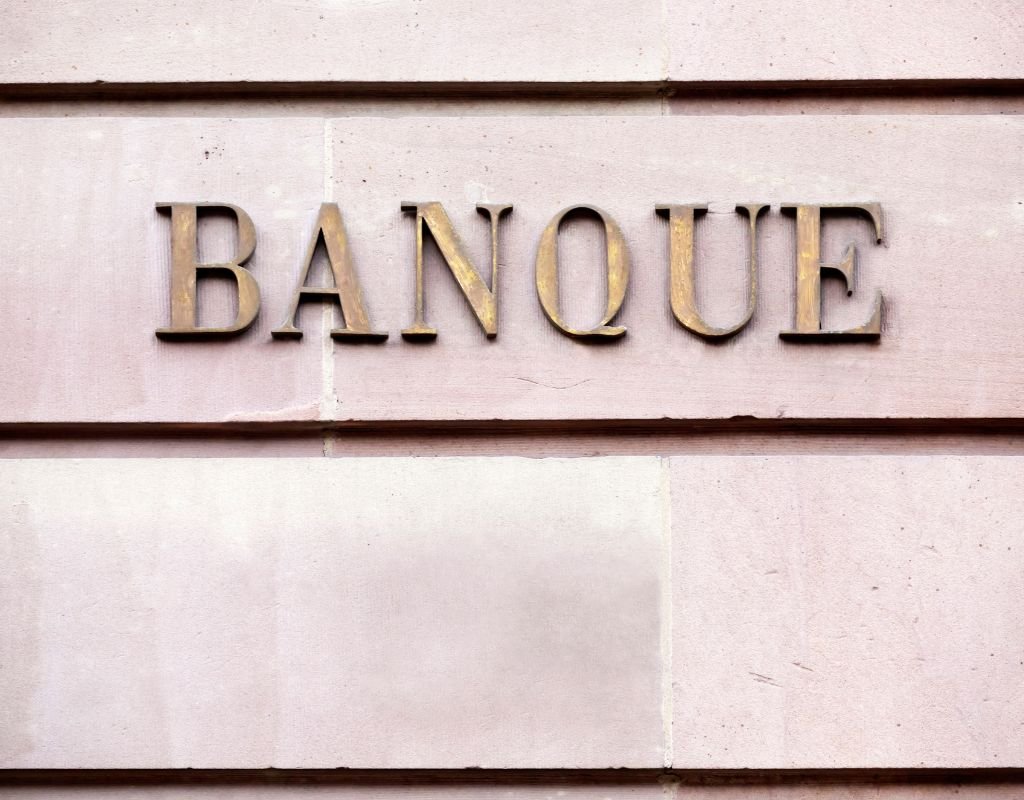
Steps for Opening a Bank Account in France
Opening a bank account in France is a straightforward process if you follow these steps:
1. Choose the Right Bank
- Research Options: Decide between traditional banks with physical branches and online banks (neobanks). Traditional banks offer in-person services, while online banks provide convenience and often lower fees.
- Do you speak French? If you’re not fluent in French, look for a bank that offer services in English. Most international banks and online banks like Boursorama or Revolute offer English service.
2. Gather Necessary Documents
Make sure you have the required documents:
- Proof of Identity
- Proof of Address
- Proof of Residency Status
- Proof of Employment or Student Status
3. Schedule an Appointment
- Contact the Bank: For traditional banks, you’ll need to make an appointment to open an account. This can often be done by visiting the bank in person or calling their customer service.
- Online Application: Online banks allow you to open an account through their website or app without a physical appointment.
4. Complete the Application
- In-Person: During your appointment, present your documents and fill out the necessary forms. The bank representative will guide you through the process.
- Online: Upload digital copies of your documents and complete the application as instructed.
5. Initial Deposit
- Minimum Deposit: Most banks require an initial deposit to activate your account. The amount varies depending on the bank and account type. Non-resident accounts usually require a minimum deposit ranging from €100 to €10,500 depending on the bank.
6. Receive Your Banking Materials
- Debit/Credit Card: Once your account is active, the bank will issue a debit or credit card, known in France as a Carte Bleue.
- Checkbook: If you’ve asked for one, you’ll also receive a checkbook.
7. Set Up Online Banking
- Access: Enroll in online banking to manage your account, make transfers, and pay bills conveniently.
Opening a bank account in a local bank in France can take about 1 to 2 weeks, so it’s wise to start the process as soon as possible.
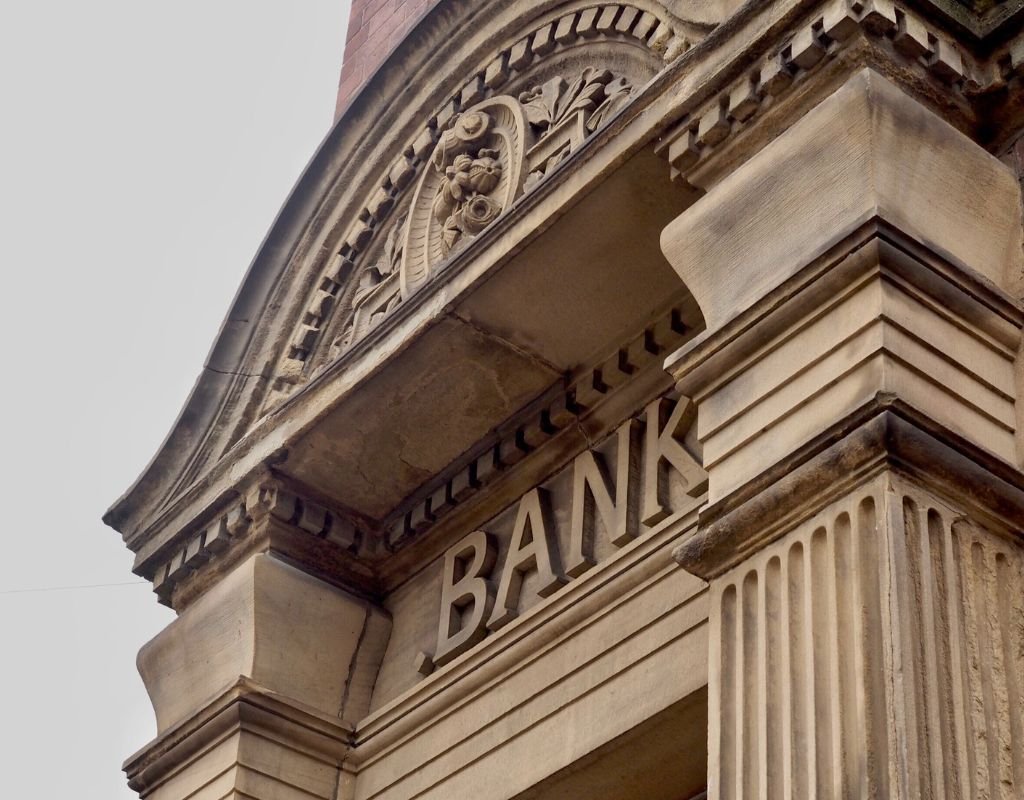
How much does it cost to open a bank account in France?
Most banks won’t charge you a fee to open a standard account, but it’s pretty common for them to ask for an initial deposit when you open the account. This deposit can range anywhere from €100 to €10,500 if you’re setting up a non-resident account. For residents, it’s at the lower end of that range.
Once your account is open, you might need to pay monthly maintenance fees. Some banks offer free accounts, but many charge a small monthly fee of around €2 to €5 to cover services like account management and online banking. If you’re adding extras like a credit card or an insurance package, you can expect to pay a bit more—usually between €6 and €14 per month.
If you’re a non-resident, keep in mind that some banks might have higher initial deposit requirements and could even limit some of the services they offer you. It’s a good idea to ask about any restrictions or additional costs before committing to a specific bank.
On the bright side, if you’re a student or under 26, some banks like BNP Paribas offer special deals with lower fees or even bonuses for opening an account. This is worth looking into if you qualify since it can save you money over time.
When choosing a bank, don’t just go with the first one you look into. Take some time to compare fees and services from different institutions. And don’t forget to ask about hidden fees, especially if you plan to use your account for international transfers, ATM withdrawals, or currency conversions. A little research upfront can save you a lot of hassle and money!
Best Banks for French Residents
When it came time to choose a bank, we initially ended up going with BNP Paribas. It’s one of the largest banks in France, and its good fee structure really stood out to us. Plus, it’s great to know we can walk into a branch if we need to sort something out in person.
Their online banking platform is reliable, and they offer specialized accounts for non-residents, which made it super versatile for us at the time. For spending outside of France, we often rely on Wise though, which offers better exchange rates and fewer fees.
We did find that this bank was more expensive than an online bank though, so don’t use this account as much anymore. Here are some other options you may find more convenient, especially if you aren’t in a big city.
National Banks with Branches in France
📎 La Banque Postale is linked to the French postal service, making it easy to find branches just about anywhere—especially if you’ve opted to live in a rural area. It’s a good pick if you prefer in-person banking and don’t want to deal with complicated fees.
📎 Crédit Agricole is another solid choice. They’re known for having a strong presence across both rural and urban areas, and they offer a mix of services, including loans, insurance, and savings accounts. It’s a top choice if you’re involved in agriculture or just want a bank with a lot of regional branches.
International Banks in France
📎 On the international side, AXA Banque is part of the AXA Group, so if you’re already using AXA for insurance, it’s super convenient to keep all your services under one roof. They’ve got a decent online banking system too.
📎 Deutsche Bank, while focused more on corporate clients in France, also offers private banking services. It’s a great option if you’ve already banked with Deutsche Bank in another country or need international banking support.

Online Banks in France
Now, let’s talk about neobanks, which are fully digital and have really shaken up the banking world in France. We turned to an online bank because the fees were so much cheaper than a traditional bank.
📎 If you’re looking for a low-fee option with a solid reputation in France, check out Boursorama Banque, which is part of Société Générale. It’s been around for a while and offers a great mix of services without breaking the bank and it’s completely French! This is my preferred option and they offer excellent service in English which made a difference for me.
📎 N26 is a favorite if you’re tech-savvy and want to handle everything online. Their app is super easy to use, and you’ll love their real-time notifications and fee-free foreign transactions. We have many friends that love this option.
📎 Revolut is another online option that’s perfect for frequent travelers or anyone dealing with multiple currencies. The app has great budgeting tools, and you can even dabble in crypto if that’s your thing.
📎 Lastly, there’s Wise, but this isn’t a bank. It’s a digital money-transfer service which allows you to get great exchange rates on international currencies, and has very low fees, but also provides you with a banking card. Wise allows you to receive money from different countries and spend it using your card anywhere around the world where visa is accepted. It’s a great impromptu ‘bank account’ until you get an actual French account.
Which French Bank is Best for Non-residents?
If you’re a non-resident looking to open a bank account in France, Boursorama Banque is hands down one of the best options out there. As a fully online bank and a subsidiary of Société Générale, it’s well-established, reliable, and offers a French IBAN—which is a big deal if you’re planning to set up local transactions or direct debits in France.
While some traditional banks also cater to non-residents, Boursorama’s low fees and wide range of services make it a standout choice.
What makes Boursorama Banque shine is the combination of low costs and great online features. You can open an account without any monthly maintenance fees, and their app makes it super easy to manage your finances from anywhere. Whether it’s paying rent, transferring money, or setting up a savings account, everything I do with my account is streamlined and straightforward.
The catch? Setting up an account with Boursorama Banque does take a little longer compared to neobanks like N26 or Revolut. They required a little more documentation, including proof of address and income, but the extra effort was really worth it for the benefits I got.
You really needed a French IBAN because some of the local services won’t accept international IBANs, so I found that Boursorama’s low fees and great range of services definitely outweighed the slightly longer setup process. We switched most of our services to Boursorama because the fees are so much cheaper than at BNP Paribas.
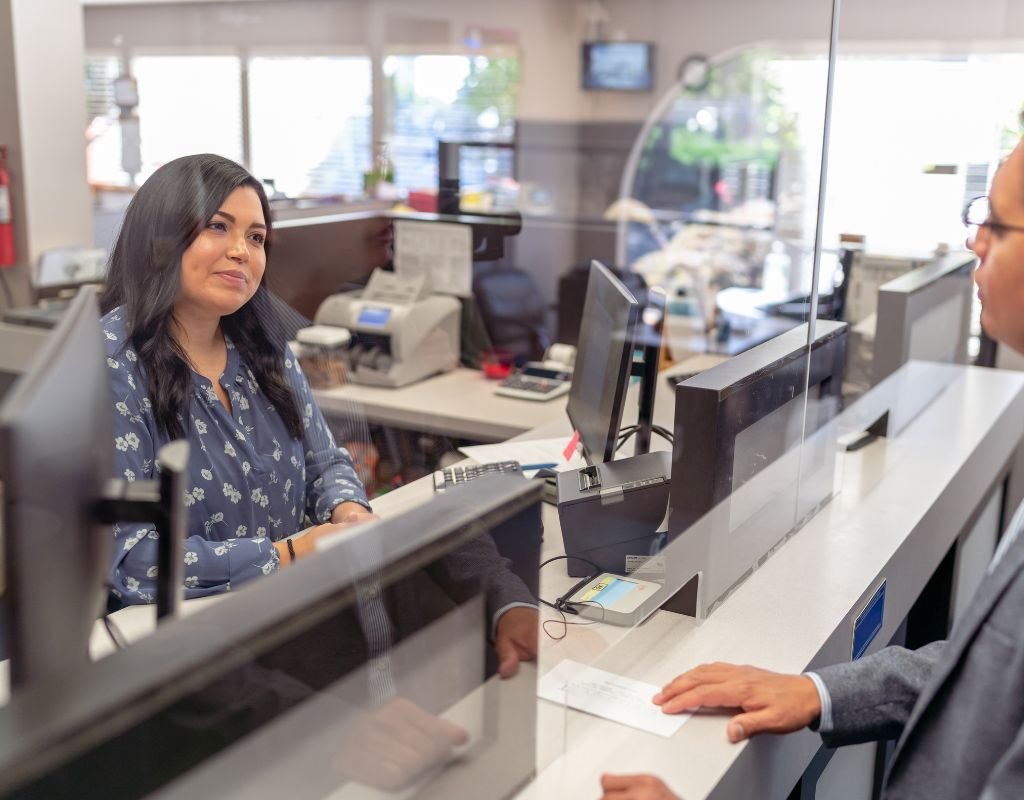
How to Open a French Bank Account FAQ
How old do you have to be to open a bank account in France?
You need to be at least 18 years old to open a bank account on your own. However, if you’re younger, a parent or guardian can help set up a joint account designed for minors.
Do you need a French address for a French bank account?
Yes, most banks require proof of a French address. This can be a utility bill, rental contract, or an attestation d’hébergement (a formal letter from the person hosting you). Some online banks, like N26 or Revolut, may not require a French address, but keep in mind they provide non-French IBANs.
Can you apply for a French bank account online?
For traditional banks, it can take a few days to a couple of weeks, depending on how quickly you provide the required documents. Online banks like N26 or Revolut can often set up your account within minutes once your identity is verified.
Do I need to tell my bank I’m going to France?
If you’re keeping an account in your home country, it’s a good idea to inform your bank about your move to France to avoid flagged transactions or blocked cards. You may also want to explore whether your bank has partnerships with French banks to make the transition smoother.
What if a bank refuses to open an account for me?
Don’t panic. France has a “droit au compte” (right to account) policy, which means if you’re denied by a bank, you can contact the Banque de France. They will assign a bank that is obligated to provide you with a basic account.


How to Open a Bank Account in France: Conclusion
Opening a bank account in France might seem like a daunting task at first, but with the right information and preparation, it’s completely manageable. Whether you’re a student, an expat, or just exploring life in the French countryside, having a local account can make day-to-day life so much easier. Really, the steps are straightforward once you know what to expect.
Most importantly, don’t stress about perfection right away. It’s okay to start with a simple solution, like a neobank, or Wise while you get settled and explore all your options. With a little research and patience, you’ll find the perfect banking fit for your life in France. Bon courage!
Hello and Welcome!

We started our family travel blog in hopes of supporting other families move abroad and travel the world. Through straightforward, sincere and supportive information we hope to provide a reliable guide for those moving overseas with a family and traveling the globe.



